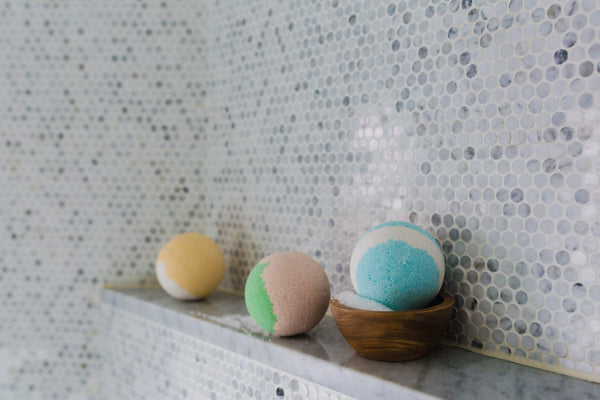Ahhh springtime! It is a season filled with beauty: tree blossoms, busy bees, flowers blooming, sunny days.....not to mention runny noses, itchy eyes, nasal congestion and sneezing. For those of us suffering from seasonal allergies, this time of year is anything but pretty. Although over the counter medications can be effective, they often cause drowsiness, dry sinuses and other frustrating side effects. What many don't realize is that there are several simple and natural remedies that have been known to reduce allergy symptoms significantly. So if you are presently squinting at your computer screen through red itchy eyes with a kleenex shoved up your incessantly runny nose and a headache from your constant achoo-ing then this may be just the perfect read for you!
In addition to being a super-food, a diuretic, a blood purifier and an amazing ingredient in hair and skin care products, Stinging Nettle also has anti inflammatory benefits, making it a popular choice for combating those seasonal sniffles. Nettle is known to help reduce the amount of histamine produced by the body and can be consumed in many ways. If you are fortunate enough to have Nettle growing in your area, the options are endless: the leaves can be cooked and used in soups, breads, stews, pastas, teas, tinctures....the list goes on. Stinging Nettle is also available in powdered form for you smoothie enthusiasts and capsule form for the most convenient and effective option. Here is some more food for thought: start consuming foods that are high in quercetin, a flavonoid that acts like an anti inflammatory and antihistamine. Quercetin has been shown to benefit bone health, protect against heart disease and reduce allergies. Foods containing quercetin include red onions, apples, citrus fruits, capers, dark fruits and berries, fennel and.......red wine! I kid you not.
A method that has been around for centuries that is used to soothe and clean the nasal passages is the Neti Pot. Supporters of this technique have reported relief not only from nasal congestion, but also from headaches associated with nasal congestion. How it works it quite simple: it flushes the nasal passages with a saline solution, removing excess mucus, pollen and debris. The upside to this method is that it really works to clear your sinuses and relieve sinus pressure. The downside is that for many folks, the idea of pouring liquid into their nostrils is undesirable to say the least. To all you brave souls out there, give it a try! It's probably not half as uncomfortable or awkward as you are convinced it may be.
Aromatherapy and the use of essential oils has been known to enhance both physical and psychological well-being and allergies are no exception. Many essential oils have expectorant, immune enhancing and/or anti inflammatory benefits such as Lavender, Tea Tree, Eucalyptus and German Chamomile just to name a few. There are countless ways to use and benefit from these powerful oils: you can add a couple drops to a cold compress applied to the forehead, sprinkle a few drops in your bath, mix a with a carrier oil for a nice deep body massage or simply inhale these lovely fragrant oils. The use of diffusers (especially nebulizers) are the most effective and therapeutic way to disperse essential oils into the air around us. Added bonus is that your home will smell heavenly! Always exercise caution with essential oils if you are pregnant or highly sensitive and be aware that not all essential oils are suitable for use on children or babies.
Here is an old folk remedy that you may not have thought of: apple cider vinegar. Yes, it's true, this fermented liquid is not only a natural antihistamine but has numerous other health benefits such as boosting your metabolism and treating gout. Try ingesting a teaspoon of ACV mixed with a glass of water three times daily to see a notable decrease in sneezing, nasal congestion and itchy eyes, nose and lips. It's always best to use unpasteurized, unfiltered and unrefined apple cider vinegar and you should make sure that the brown blob-like "mother" is present. Other ways to reduce allergy symptoms may be as simple as washing your bedding weekly, maintaining a clean home, ensuring your vacuum and air conditioner have HEPA filters, limiting your time outdoors when ragweed pollen counts are high and eating foods that are high in omega-3 fatty acids. Is it really that easy? Try out a couple methods and see what works best for you. Breathe easy this spring!

